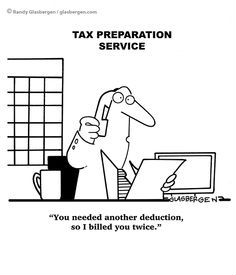
Accounting professionals who continue their education are more likely to get:
- Job offers
- Salary raises
- Promotions
In this article, we discuss the best accounting certifications, how they can help you, and how to obtain an accounting certificate quickly and affordably.
List of Accounting Certifications
Below is an extensive list of the most common accounting certifications that will help you in your accounting career:
- CPA (Certified Public Accountant)
- CMA (Certified Management Accountant)
- CIA (Certified Internal Auditor)
- EA (Enrolled Agent)
- CPB (Certified Public Bookkeeper)
- CISA (Certified Information Systems Auditor)
- CBA (Certified Bank Auditor)
- CFF (Certified in Financial Forensics)
- CFE (Certified Fraud Examiner)
- CPP (Certified Payroll Professional)
- CBA (Certified Business Appraiser)
- CCA (Certified Credit Executive)
- CISM (Certified Information Security Manager)
- CRP (Certified Risk Professional)
- ABA (Accredited Business Accountant)
- CQA (Certified Quality Auditor)
- ATA (Accredited Tax Advisor)
- ATP (Accredited Tax Preparer)
Let’s review each one and see if they are right for your career.
Certified Public Accountant (CPA)

As a Certified Public Accountant, you will be responsible for maintaining the competitive edge of your company by ensuring financial integrity.
CPAs constantly put their certifications skills to use. This includes tax planning and investment consulting, as well as risk management and account analysis.
While requirements differ from state to state, in general, you must hold a bachelor’s degree in finance or accounting before you can become a CPA.
Furthermore, this accounting certification is almost one of the most difficult to get. Individuals seeking to become CPAs have to pass four different exams over the course of 18 months.
Additionally, CPA jobs are expected to grow by 13% from 2012 – 2026.
This is because during the Internet wave of the mid-1990s and early 2000s many would-be accounting students opted for IT majors instead.
Consequently, as more established CPAs retire, younger replacements will be needed.
For those interested, there are a variety of ways in which an accountant can acquire specialized CPA certification training, including both on-campus and online CPA programs.
Popular CPA Certification Training Programs:
Certified Management Accountant (CMA)
The CMA credential is recognized by organizations all around the world. By obtaining your CMA you prove your expertise in:
- decision support
- analysis
- professional ethics
Hence, if you’re looking to expand your career potential, a CMA certification will most help.
To qualify for this certification you must hold a bachelor’s degree and have been involved in management accounting for at least 2 years.
After meeting these qualifications you must pass a $700 two-part exam, taking both parts within a year of each other.
On average, CMAs make one-third more money than their non-certified peers. According to hiring managers, there are two CPAs for every one CMA. Due to this fact, a CMA may help to distinguish your resume from the pack. Check out these top ranked CMA review courses.
Certified Internal Auditor (CIA)

For individuals interested in the accounting disciple of internal auditing, a CIA license is the way to demonstrate their competency.
By obtaining your CIA designation you prove your professionalism and ability to serve as a key player within your organization.
Furthermore, CIAs provide objective assessments on the overall efficiency of a company’s operations.
A CIA helps an organization by improving the effectiveness of its governance and risk management processes. However, depending on the organization a CIAs role can also include financial reporting and fraud detection.
You must hold a post-secondary degree or higher to be eligible to take the CIA exam.
This computer-based exam is offered in well over a dozen different languages. This gives students from all across the world the opportunity to better develop their knowledge of best practices within the accounting industry.
Typically, exam prices range from as low as $50 upwards of $250 per test.
Enrolled Agent (EA)

By holding this license you will have unlimited rights to represent clients before the IRS.
If you’re not a former IRS employee with at least five years of experience, you’ll be required to pass a tax code exam and exhibit knowledge of all federal regulations and guidelines.
Unlike attorneys or other professionals who may perform tax services, EAs are the only federally licensed taxation specialist. Therefore, if you have a vested interest in American taxation, the Enrolled Agent certification may be beneficial to your future.
Please understand that while EAs do have the right to act on a client’s behalf regarding tax issues they aren’t the same as tax attorneys.
If for some reason someone is required to go on trial, EAs aren’t legally permitted to represent them. Instead, when criminal charges are involved a qualified tax attorney is required.
Certified Public Bookkeeper (CPB)
While a CPB certification isn’t required to become a bookkeeper this license helps to distinguish you as a nationally accredited service provider.
Upon passing your CPB certification exam, you’ll prove to your clients that their bookkeeping is based on ethics and experience.
A CPB certification demonstrates that you have the ability to do a wide range of task such as:
- recording financial statements
- finding accounting errors
- discovering any fraud or theft
To be eligible to take this four-part exam you will need a two-year or four-year degree however, individuals with more than four thousand hours of bookkeeping experience are exempt from this requirement.
Certified Government Auditing Professional (CGAP)
The National Institute of Internal Auditors considers the CGAP an excellent professional credential that prepares you to be competitive in this demanding field. Whether you’d like a promotion or another advancement opportunity the CGAP certification may be the right choice for you.
Upon passing this challenging exam, you provide yourself with an opportunity to increase your earnings by upwards of 30%.
The amount of work required to successfully pass this exam is sure to greatly enhance your accounting skills and knowledge. This new skill set is often met with the admiration and respect of your colleagues in the field.
This exam is available year-round at official Pearson VUE testing centers worldwide.
Certified Information Systems Auditor (CISA)
Perhaps technically inclined individuals will be interested in pursuing a CISA license.
A CISA demonstrates an ability to:
- audit
- control
- monitor information systems for businesses
Furthermore, if you’re looking to distinguish yourself, becoming CISA certified is sure to display your IT auditing knowledge to potential employers.
Candidates must have at least five years of professional experience. Additionally, they must commit to taking 20 hours worth of CISA courses every year.
The CISA exams are somewhat expensive, starting around $500 for nonmembers.
Despite the testing format not being much different from other certification programs the CISA has a reputation for being difficult.
Like many jobs within the accounting and IT fields, there are always openings available for very talented individuals. The CISA certainly helps to portray you in such a light.
Ultimately, CISA positions will jump as technology becomes more interlaced in our lives.
Certified Bank Auditor (CBA)
While many certifications are available for financial professionals the CBA certification is the industry standard for bank auditors.
This certification tests potential candidates in banking specific areas such as bank law and auditing regulations.
Your main job will be to constantly ensure that the financial institution that you represent is following federal as well as internal guidelines.
Bank auditors are usually required to hold at least a bachelor’s degree in accounting or a related field. Due to the nature of their work, CBAs must have an eye for detail as well as superb communication and organizational skills.
It is not uncommon for top-tier CBAs to take home six-figures per year.
Certified in Financial Forensics (CFF)
Forensic experts are needed in almost every field imaginable; the same is true for accounting. Essentially, a CFF performs investigations, inspections, and examination or other forms of analysis to obtain answers or give an opinion.
CFF certifications are usually granted to qualified CPAs who want to specialize in forensic accounting. As a CFF you will perform a wide variety of services including:
- fraud prevention
- detection
- family law
- electronic data analysis
- damage estimation
- valuations
Individuals seeking financial forensics work may also want to look up the Certified Forensic Accountant program (Cr.FA).
This is another type of forensic accounting certificate, which might fit some student better depending upon need.
Certified Fraud Examiner (CFE)

Despite this, if you find that you have a knack for spotting fraudulent activate a CFE certification may be exactly what you need.
CFEs train not only to discover fraud but also to determine why fraud occurs.
Due to the nature of their work CFEs are considered to be of high moral character.
CFEs train specifically to spot fraud. Because of this, they have the potential to save a company tens of thousands if not millions of dollars. Organizations highly value these professionals for this exact reason.
Like most accounting certifications, including accounting certificates online, the exact requirements differ from state to state.
However, it’s not unusual for a college degree to be required to take the exam.
The $350 test will prove that you are up-to-date on the latest and best practices within the accounting fraud industry.
Certified Payroll Professional (CPP)
A CPP certification demonstrates your skills and knowledge in the payroll field. This credential is granted by the American Payroll Association, which has been around since the 1980s.
After its initial launch, the CPP quickly became the industry standard certification for payroll professionals.
To be a CPP you must be competent in all areas involving:
- taxation
- health benefits
- accounting
To be eligible for the CPP exam you must have been involved in:
- payroll education
- administration
- reporting
- accounting for at least three of the last five years
The price for this exam is usually in the $370 – $425 range and can be taken at any Pearson VUE location worldwide.
Certified Business Appraiser (CBA)
According to its official website, the CBA distinction grants its associates special prestige and recognition worldwide. Consequently, by receiving this accolade you’ll demonstrate that you have knowledge only held by the most accomplished business appraisers in the world.
This achievement is one of the best, if not the best when it comes to business appraisal professionals. With this certification, clients and potential employers can grant full confidence in your skills and abilities.
To be eligible for this exam you must first possess a four-year college diploma. After meeting this requirement you’ll need to become a member of IBA, the official governing body of the CBA license. Lastly, you are required to take and pass a $595 five-hour written exam.
Depending on several circumstances a CBA can either work as an in-house appraiser or a consultant. For in-house appraisers, the salary unusually averages out to be roughly $70,000 per year .
Consultants, which are self-employed can make as much mid to high six figures per year, depending on several variables.
Certified Credit Executive (CCE)
Achievers of the CCE license are capable of executive-level credit management functions. This achievement created by the National Association of Credit Management is the highest certification available to those who want to demonstrate their credit management proficiency.
To obtain a CCE license you must first graduate from a four-year college.
After satisfying this requirement you must gain ten-years of financial management experience and pass a four-hour written exam.
This exam will extensively test your knowledge of:
- domestic and international credit concepts
- accounting law
- business management skills
CCEs must re-certify every three years.
Over the course of the three-year gap, a minimum of six recertification points must be accumulated.
Furthermore, these points can be earned by participating in a wide range of projects. Basically, attending seminars and conferences, serving as a presenter or panelist or teaching business credit related courses all count towards your points.
Certified Information Security Manager (CISM)
Individuals interested in technology may consider becoming a CISM. Your main job will be to oversee the information security duties of your enterprise.
Day to day task includes everything from system access control management to physical network security.
As more and more critical business applications go online, more CISMs will be needed to safeguard company assets.
Hackers, both foreign and domestic have targeted a vast majority of Fortune 500 companies. Because of these ever-present threats, CISMs are expected to be relevant for the foreseeable future.
You’re required to have a minimum of five years worth of information security work under your belt before they are eligible to take the exam. Additionally, you must also be committed to a minimum of 20 hours per year of continued education in order to maintain this certification.
Certified Risk Professional (CRP)
When it comes to risk management professionals, there’s no award more prestigious than the CRP certification.
This exam was developed by the BAI Center for Certification and is only granted to individuals who demonstrate strong knowledge of:
- risk assessment
- identification
- management
Essentially, this award was developed to recognize individuals seeking accreditation as risk management experts.
As a CRP license holder you are allowed to specialize in one or more of the following specialty areas:
- treasury
- regulation compliance
- accounting
- finance or auditing
Accredited Business Accountant (ABA)
If you’re looking to go into public accounting and are specifically interested in working with small to medium-sized businesses or providing private financial services, this may be the right certification for you.
To qualify, you need to hold three years of professional experience (two of which may be satisfied through college credit). Additionally, you also have to achieve a minimum score of 70% on the two-part ABA exam.
This certification is offered by the Accreditation Council for Accountancy and Taxation. While it only qualifies you for practicing public accountancy in a minority of states (Delaware, Iowa and Minnesota), the ABA certification can give you a competitive edge and even lead to a salary increase.
Certified Quality Auditor (CQA)
The CQA certification offered by ASQ is specifically designed for dedicated audit professionals and can enhance your salary and career prospects.
Eligibility criteria for this certification are strict: at least 8 years of full-time paid work experience are required, with three years in a decision-making position. A higher degree from an accredited school may be used to waive up to five years (for a Master’s degree or Ph.D.).
Candidates need to pass a 150-question exam based on a relevant body of knowledge in order to be awarded a CQA certificate.
Accredited Tax Advisor (ATA)
The ATA designation is awarded by ACAT to competent practitioners whose expertise includes delicate tax planning and tax consulting issues.
To earn this accreditation, you must pass the ATA examination. You also need to acquire five years of experience in tax preparation, planning, consulting and compliance, with 40% of this experience in the fields of tax planning and consulting. Bear in mind that for the purposes of this qualification a tax season (January to April) counts as one year.
Accredited Tax Preparer (ATP)
ATP is yet another ACAT-offered credential for tax practitioners.
This qualification focuses on tax preparation and requires three years of work experience in tax preparation, two of which may be waived if the candidate holds equivalent college credits.
Applicants also need to score 70% or better on the ATP examination.
Finance and Business Certifications
There are many more certifications for the business world than just for accountants. If you’re interested in going into business or finance and not particularly interested in going into accounting, You should check out this list of the best finance certifications. Basically, these programs will help you start your career finance and climb the corporate ladder.
